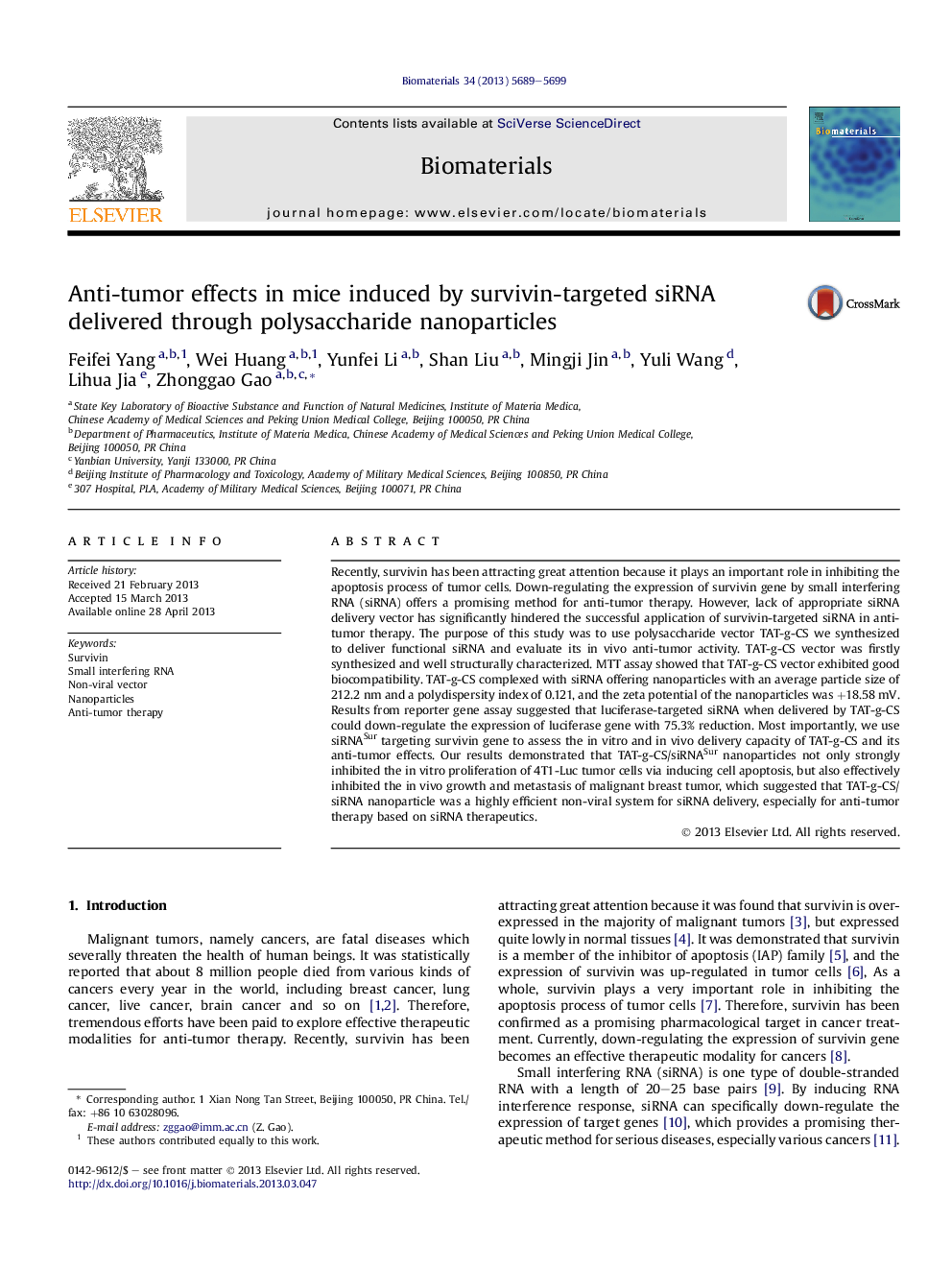| Article ID | Journal | Published Year | Pages | File Type |
|---|---|---|---|---|
| 6368 | Biomaterials | 2013 | 11 Pages |
Recently, survivin has been attracting great attention because it plays an important role in inhibiting the apoptosis process of tumor cells. Down-regulating the expression of survivin gene by small interfering RNA (siRNA) offers a promising method for anti-tumor therapy. However, lack of appropriate siRNA delivery vector has significantly hindered the successful application of survivin-targeted siRNA in anti-tumor therapy. The purpose of this study was to use polysaccharide vector TAT-g-CS we synthesized to deliver functional siRNA and evaluate its in vivo anti-tumor activity. TAT-g-CS vector was firstly synthesized and well structurally characterized. MTT assay showed that TAT-g-CS vector exhibited good biocompatibility. TAT-g-CS complexed with siRNA offering nanoparticles with an average particle size of 212.2 nm and a polydispersity index of 0.121, and the zeta potential of the nanoparticles was +18.58 mV. Results from reporter gene assay suggested that luciferase-targeted siRNA when delivered by TAT-g-CS could down-regulate the expression of luciferase gene with 75.3% reduction. Most importantly, we use siRNASur targeting survivin gene to assess the in vitro and in vivo delivery capacity of TAT-g-CS and its anti-tumor effects. Our results demonstrated that TAT-g-CS/siRNASur nanoparticles not only strongly inhibited the in vitro proliferation of 4T1-Luc tumor cells via inducing cell apoptosis, but also effectively inhibited the in vivo growth and metastasis of malignant breast tumor, which suggested that TAT-g-CS/siRNA nanoparticle was a highly efficient non-viral system for siRNA delivery, especially for anti-tumor therapy based on siRNA therapeutics.
